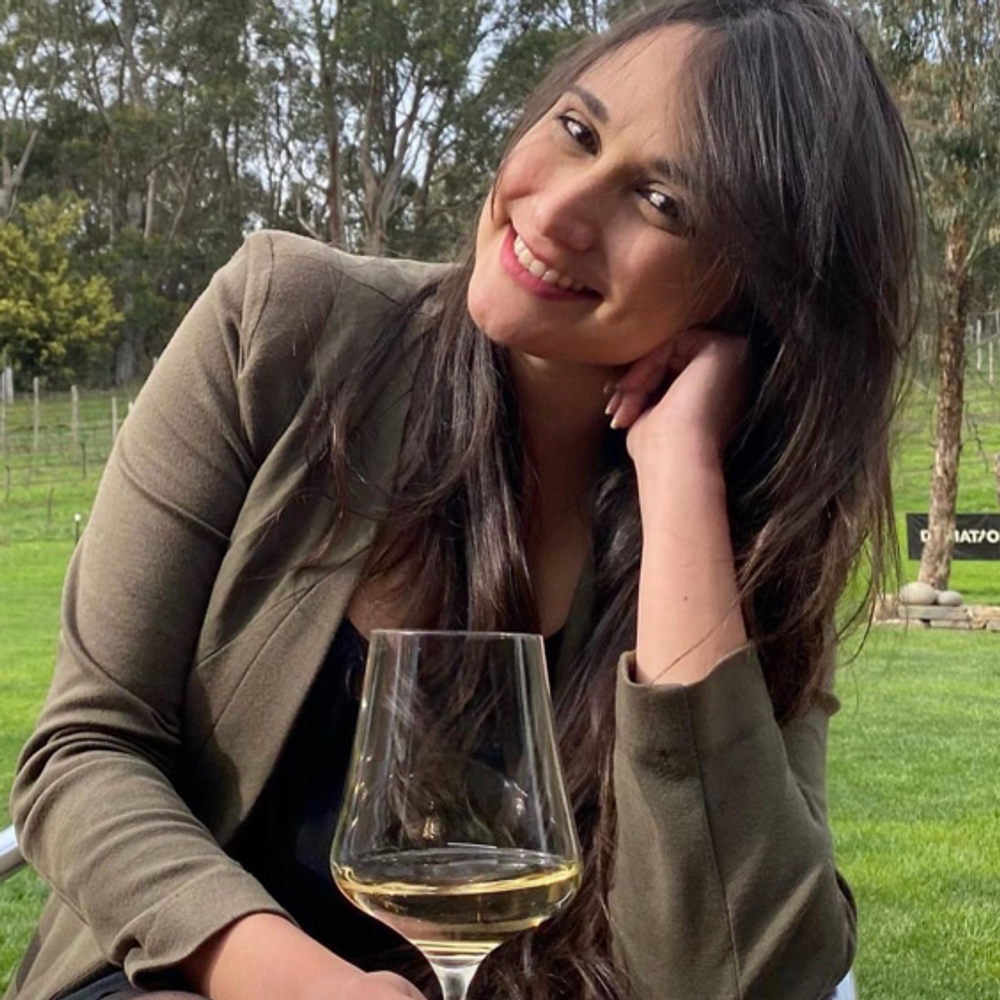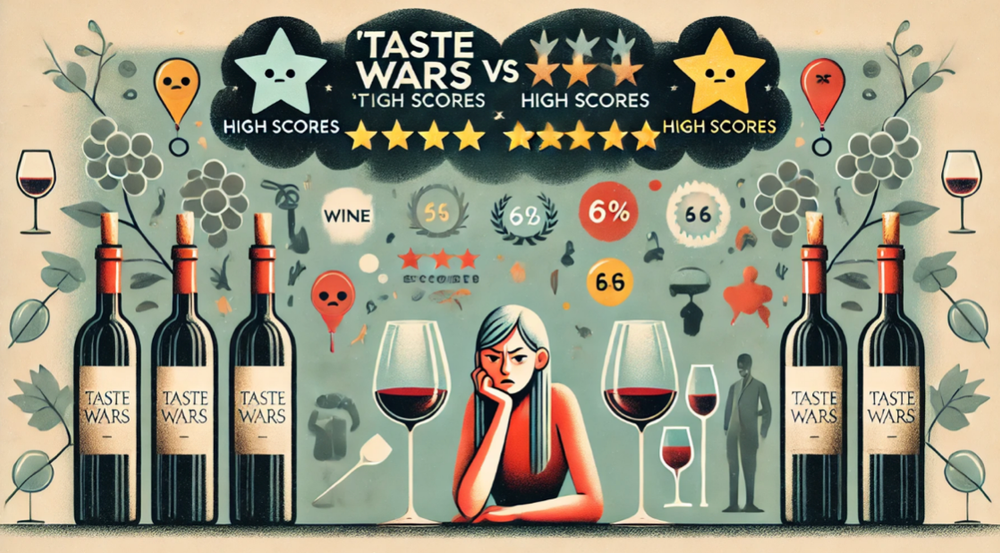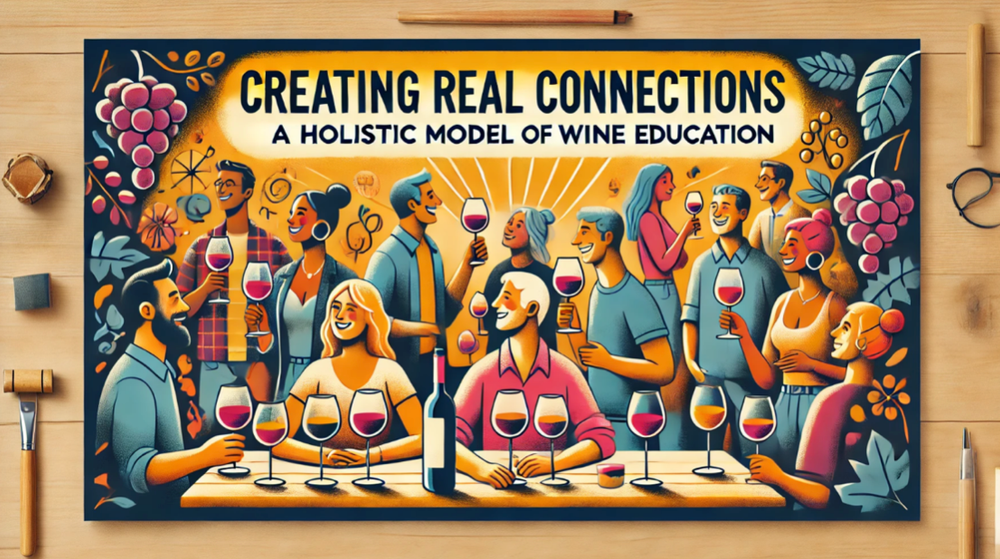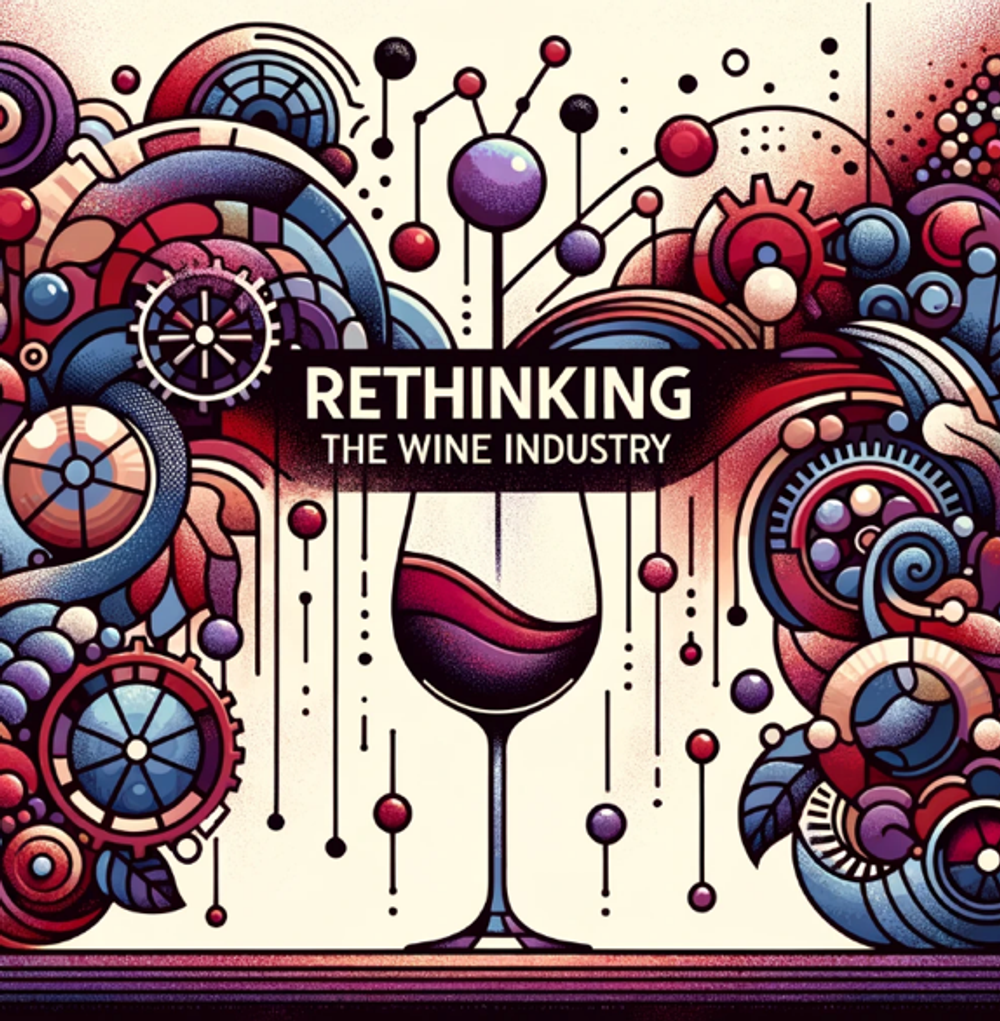Wine education as we know it is ripe for transformation. For too long, it’s been centred around technical tastings, memorising facts, and perfecting the ability to analyse flavour profiles. But is this approach really inspiring today’s wine enthusiasts? Is it helping people form meaningful connections with wine, or is it simply a means of gatekeeping. A way to determine who “knows” wine and who doesn’t?
I believe it’s time to challenge these conventional methods and redefine what wine education can - and should—be. A true wine education is about far more than just taste; it’s about creating a lasting bond with wine, one that goes beyond flavour and technical details to something much more human and memorable.
The limits of taste: why flavour isn’t everything

Wine consultant, Priscilla Hennekam, wants to shake up wine education and open it up to more people by making it less structured and focused on traditional tasting criteria
For decades, the wine industry has elevated taste as the ultimate measure of quality. Dr Charles Spence, a professor of experimental psychology at Oxford University, offers a fresh perspective. He says: “Our senses do not operate in isolation; they interact in complex ways.”
And yet, despite the understanding that taste is influenced by other senses and environmental factors, we continue to use flavour alone as the gold standard, awarding medals and scores based on just one element of the experience.
The emphasis on taste creates a narrow view, the wine industry limits the experience to a single aspect, failing to recognise wine can also evoke memories, create connections between people, and carry stories that resonate on a personal level. It reduces wine to a mere technical object, rather than an experience to be savoured and shared.
The result? A “taste wars” mentality and an industry that is more focused on scoring, comparing, and critiquing than on inspiring and connecting. Is taste alone enough to represent the true value of a wine, though? Here’s why this approach is problematic.
A “Taste Wars” mentality: the downside of prioritising flavour and scores
When wine producers and critics place too much emphasis on scores and medals, they inadvertently create a sense that a wine’s worth is tied solely to these ratings. Imagine a less expensive wine scoring just as highly as a premium bottle. To a consumer, this can be confusing.
If a $20 wine can achieve similar scores to a $100 bottle, then why pay the premium? This can lead to distrust, as consumers feel they’re not getting fair value. When a market emphasises scores as the primary determinant of quality, it risks alienating consumers who are unable to understand why certain wines cost so much more than others. In the end, too much reliance on scoring dilutes the authenticity of the premium wine experience.
A market driven by skepticism

How can a $20 wine score higher in a taste test than a $100 wine? No wonder consumers get confused by wine, says Priscilla Hennekam
The wine industry’s heavy reliance on scores and ratings has led to a market saturated with high numbers but lacking in clarity and genuine consumer trust. With so many reviewers assigning scores, it’s become a crowded field where ratings are no longer the valuable differentiators they once were.
Many wineries, especially those producing premium or artisanal wines, feel that these scores no longer meet their expectations, or provide the added value they hoped for. They face an uphill battle in justifying their wines’ unique qualities amid a sea of numbers that increasingly fail to communicate what truly sets them apart.
For consumers, the abundance of high scores only adds to the confusion. They may see wines at vastly different price points with similar ratings, leading them to question why one wine costs significantly more than another. This overemphasis on scores has created a sense of doubt and frustration.
Instead of scores simplifying the selection process, they leave consumers wondering if these numbers are simply marketing tactics rather than genuine measures of quality.
As a result, a climate of skepticism has emerged. When consumers are constantly told that only wines with high scores are “good,” they may start to feel manipulated, as if ratings serve more to drive sales than to guide them authentically. This widespread doubt encourages people to approach wine with caution, making them more skeptical of the industry’s claims and less willing to explore with an open mind.
This skepticism ultimately chips away at the excitement and curiosity that should be at the heart of wine exploration, replacing it with cynicism and a sense of distrust. Instead of feeling empowered to make choices based on their own tastes and experiences, consumers are left questioning the motives behind every rating and wondering if wine has become more about numbers than enjoyment. In this context, the industry’s overreliance on scores not only diminishes the consumer experience but also erodes the authentic connections that wine is capable of fostering.
By moving beyond this “taste wars” mentality and embracing a more consumer-focused approach, the wine industry has the chance to restore trust and bring back the joy and discovery that should define the experience of wine.
Loss of joy and discovery
The wine industry’s focus on scores and ratings, paired with a culture of technical analysis, has not only led to confusion and skepticism among consumers, but has also had an unintended psychological impact on wine professionals’ and enthusiasts’ enjoyment of wine.
So conditioned to critiquing wines, they can find themselves analysing every sip, stripping away the simple pleasure of drinking - much like chefs who don’t want to cook at home. Over time, this creates a mental barrier that may even deter people from drinking wine altogether.
This judgmental culture also fosters a sense of superiority among some wine professionals, leading them to treat consumers as if they don’t deserve to enjoy wine unless they can recite soil types, climate factors, or tasting notes with precision.
People often feel judged or looked down upon, as if they need a wine education “pass” to be able to enjoy a glass without guilt. This can turn off consumers quickly, making them feel excluded from a world that should be welcoming. Instead of sparking excitement, curiosity, and playfulness, this approach breeds an environment where people feel they’re constantly being tested and judged rather than simply enjoying the moment.
Even more concerning, this environment fosters a “preachy” mindset among some wine enthusiasts, where the joy of sharing wine is overshadowed by a compulsion to instruct others on the “correct” way to experience it. This approach can alienate people, making wine feel like an exclusive club, accessible only to those in-the-know. In an industry already grappling with the challenge of attracting new consumers, this mentality is counterproductive.
The wine industry often imposes rigid standards on what it means to appreciate wine properly - knowing exact tasting notes, understanding terroir, or adhering to expert opinions. When people feel pressured to meet these standards, it can lead to feelings of intimidation and judgment. Rather than exploring wine freely and based on their own tastes, many feel discouraged or unqualified, as if they’re “doing it wrong” if they don’t conform.
This pressure ultimately drains the joy from the experience, transforming wine into something exclusive rather than inclusive. In reality, wine should be about personal enjoyment, discovery, and connection. It should invite people to explore and find what resonates with them, free from rigid expectations or the fear of judgment. People should be encouraged to connect with wine in a way that feels personal, without the pressure of passing a knowledge test or proving they’re “worthy.”
The current model, focused on ratings and technical knowledge, limits consumers to safe, high-scoring choices rather than allowing them the freedom to explore new wines based on personal curiosity. It undermines the excitement of finding something new, stripping away the spontaneous joy that should be at the heart of wine appreciation.
Our goal should be to inspire joy, curiosity, and personal connection with wine—not to reduce it to a competitive “taste war.” By shifting away from this judgmental and score-driven mentality, the wine industry can create an environment where consumers feel empowered to enjoy wine in a way that’s meaningful to them.
Let’s encourage a culture of exploration and delight, where wine is a source of connection and enjoyment, not a subject for critique.
Creating real connections: a holistic model of wine education

Imagine a model of wine education that values the whole experience over technical tasting. Research has shown that people are more likely to connect with products through emotions rather than just technical knowledge. In the long run, emotional connections lead to stronger consumer loyalty and a richer appreciation of wine.
When people open a bottle with friends, it’s not the notes of cassis or vanilla they will remembe - it’s the shared laughter, the warmth of the moment, and the memories made together. Why spend time memorising facts about terroir, soils, and climate when a meaningful story can bring people closer to wine?
Shifting the focus away from technical details and towards experiences and stories could help create a model of wine education that encourages consumers to explore wines based on what they love, not just what they’re “supposed” to like.
The power of personal preference: a new path for wine education
Why not empower consumers to discover their own preferences and connect with wines that reflect their unique tastes? In today’s world, where people crave experiences, community, and meaning, a more inclusive wine education model can provide just that.
Today’s consumers value personal connections and authenticity. Often, it’s the memories associated with special occasions that shape how people feel about a wine, far more than a list of flavour notes or technical specifications.
By focusing on these authentic connections, brands have the opportunity to stand out. While there are countless wines with similar flavour profiles, there are far fewer with stories that create lasting impressions. This is a chance to redefine the wine experience as something much more meaningful than just what’s in the glass.
Educate ourselves - not the consumers
The reality is, we don’t need to educate consumers, we need to educate ourselves about them. To reach modern wine consumers, the industry needs to listen to their stories, aspirations, and desires. Rather than assuming people primarily want technical knowledge, we should be empathising with their experiences and rethinking how we connect with them.
Wine education should be as much about understanding others, emotional intelligence, and relationship skills as it is about analysing flavour, aroma, and memorising facts.
Soft skills, such as active listening, empathy, and effective communication, are invaluable in the wine industry today. Building genuine relationships with consumers, especially in a world where people crave connection, requires more than knowledge of grape varietals or terroir; it requires the ability to engage meaningfully, to connect with their values and interests. These skills enable professionals to create an inviting environment, helping consumers feel comfortable, understood, and open to exploring wine without judgment or intimidation.
Emphasising these soft skills in wine education is a shift toward a more consumer-centric model, where the goal is not to lecture but to build a dialogue.
Emotional intelligence, the ability to read and respond to people’s feelings and reactions, can transform how wine is experienced and shared. Rather than approaching wine as something to be mastered, wine professionals who develop these skills can guide others on a journey of discovery, where personal taste and enjoyment are valued over knowledge or expertise.
By doing so, we can move away from the “teacher-student” dynamic and cultivate an atmosphere where people feel encouraged to explore wine in their own way.
In the food and drink industry, “education” is an expensive endeavour. Brands that attempt to “teach” consumers often invest heavily in campaigns and programs with no guaranteed success. Instead of forcing a formal, fact-heavy education model, the industry could benefit from creating a more intuitive and welcoming approach to wine that reflects the joy, relaxation, and celebration it brings to people’s lives.
By focusing on soft skills and fostering a culture of empathy and connection, we can make wine approachable and enjoyable for everyone, celebrating its place as a source of connection, not complexity.
A call to action: #RethinkingtheWineIndustry

It’s time to take a fresh look at wine education. Let’s move beyond technical tastings, ratings and scores and focus on creating genuine connections, inspiring curiosity, and building long-term loyalty.
Wine isn’t just a drink; it’s an experience that brings people together, inspires them, and creates unforgettable memories. Instead of reducing wine to a single element (taste) and a rigid structure, let’s embrace the creativity, individuality, and joy it can offer.
Let’s start this conversation and make a real impact. Follow and share the hashtag #Rethinkingthewineindustry, and let’s discuss how we can make wine more accessible, inclusive, and enjoyable for everyone. Together, we can shift wine education from a narrow focus on taste and facts to a broader exploration of connection, experience, and personal discovery.
* Priscilla Hennekam is a wine consultant that works with producers and brands to help them rethink their marketing and education strategies. She also helps produce the Rethinking The Wine Industry newsletter. You can find out more at her website here.
* You can follow Rethinking the Wine Industry on Instagram here.






























